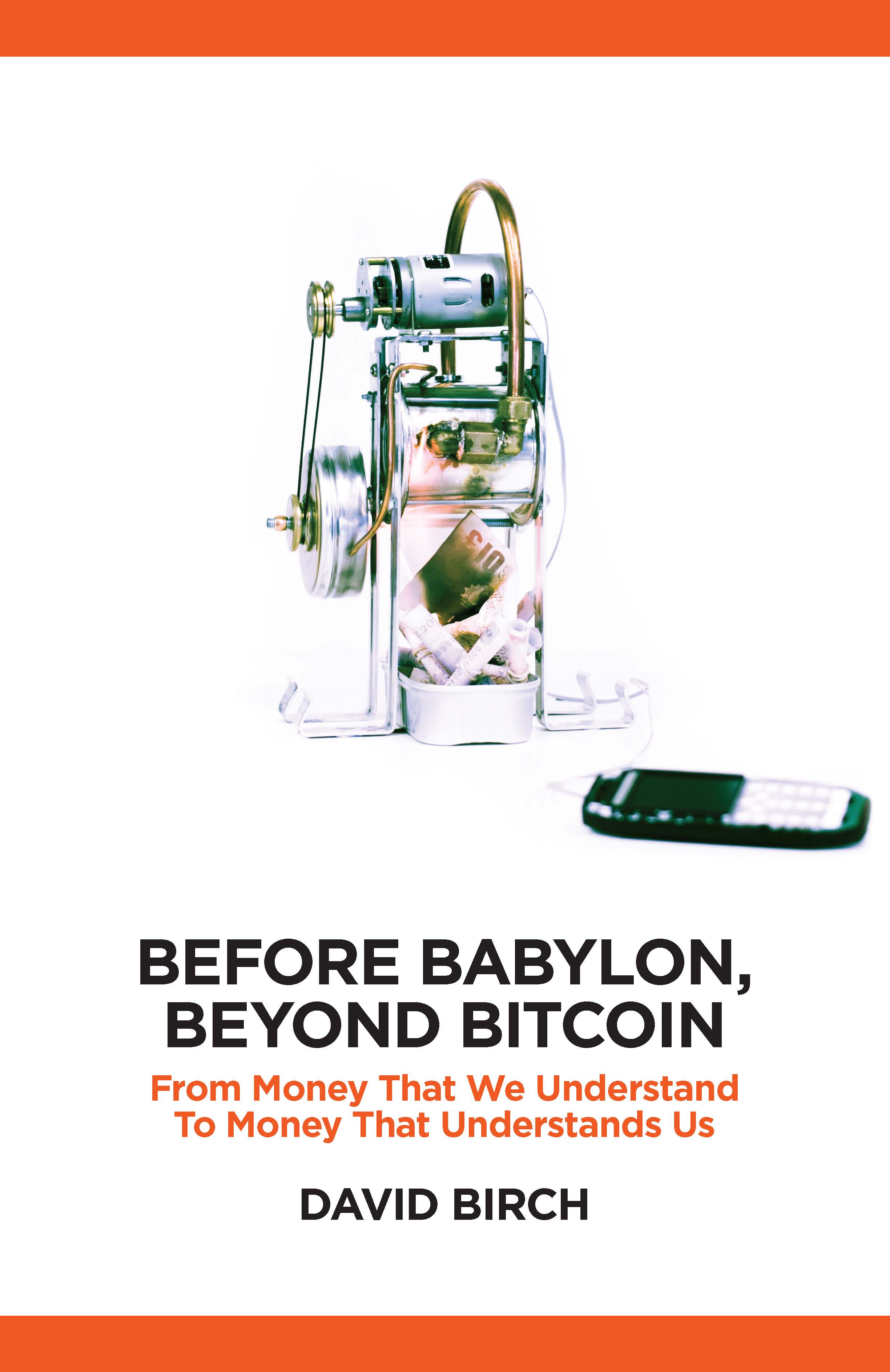
By @SimonCocking review of Before Babylon, Beyond Bitcoin: From Money that We Understand to Money that Understands Us (Perspectives) by
Technology is changing money and this book looks at where it might be taking us. Technology has transformed money from physical objects to intangible information. With the arrival of smart cards, mobile phones and Bitcoin it has become easier than ever to create new forms of money. Crucially, money is also inextricably connected with our identities. Your card or phone is a security device that can identify you – and link information about you to your money.
To see where these developments might be taking us, Dave Birch looks back over the history of money, spanning thousands of years. He sees in the past, both recent and ancient, evidence for several possible futures. Looking further back to a world before cash and central banks, there were multiple currencies operating at the level of communities, and the use of barter for transactions. Perhaps technology will take us back to the future, a future that began back in 1971, when money became a claim backed by reputation rather than by physical commodities of any kind. Since then, money has been bits.
The author shows that these phenomena are not only possible in the future, but already upon us. We may well want to make transactions in Tesco points, Air Miles, Manchester United pounds, Microsoft dollars, Islamic e-gold or Cornish e-tin. The use of cash is already in decline, and is certain to vanish from polite society.
This is an interesting and thoughtful book to read. Also to get a disclaimer out of the way, I have watched his TEDX talk, interviewed him before, and read some of his articles and thoughts online. With this in mind I was curious what the book would be look. It has a quirky, idiosyncratic, playful side to it. Overall though it is both insightful, thought provoking and simply enjoyable to read. Here is someone who tried to implement something similar to bitcoin several decades earlier. In this context he has a real and nuanced understanding of why you might want to introduce something like bitcoin, or rather cryptocurrencies in general. A well as the inherent challenges to be faced. For Birch it may well have been the case that his first involvement in an alternative currency simply came too early and before the optimal technology, and user intent existed.
The book asks some important questions, and also attempts to place cryptocurrencies into a wider historical perspective. It is a useful, important and thought provoking book to read. With the daily, and even hourly obsession with following rising, and falling prices of your own particular favourite crypto currency, this is a timely book to read for a much bigger picture overview of what is happening and why. If you have any degree of interest in what is currently happening in the world of crypto, fiat, and banking in general, then this is a smart choice for your Q1 reading, and it is well written enough that you could even read it at bedtime without it sending you to sleep.














